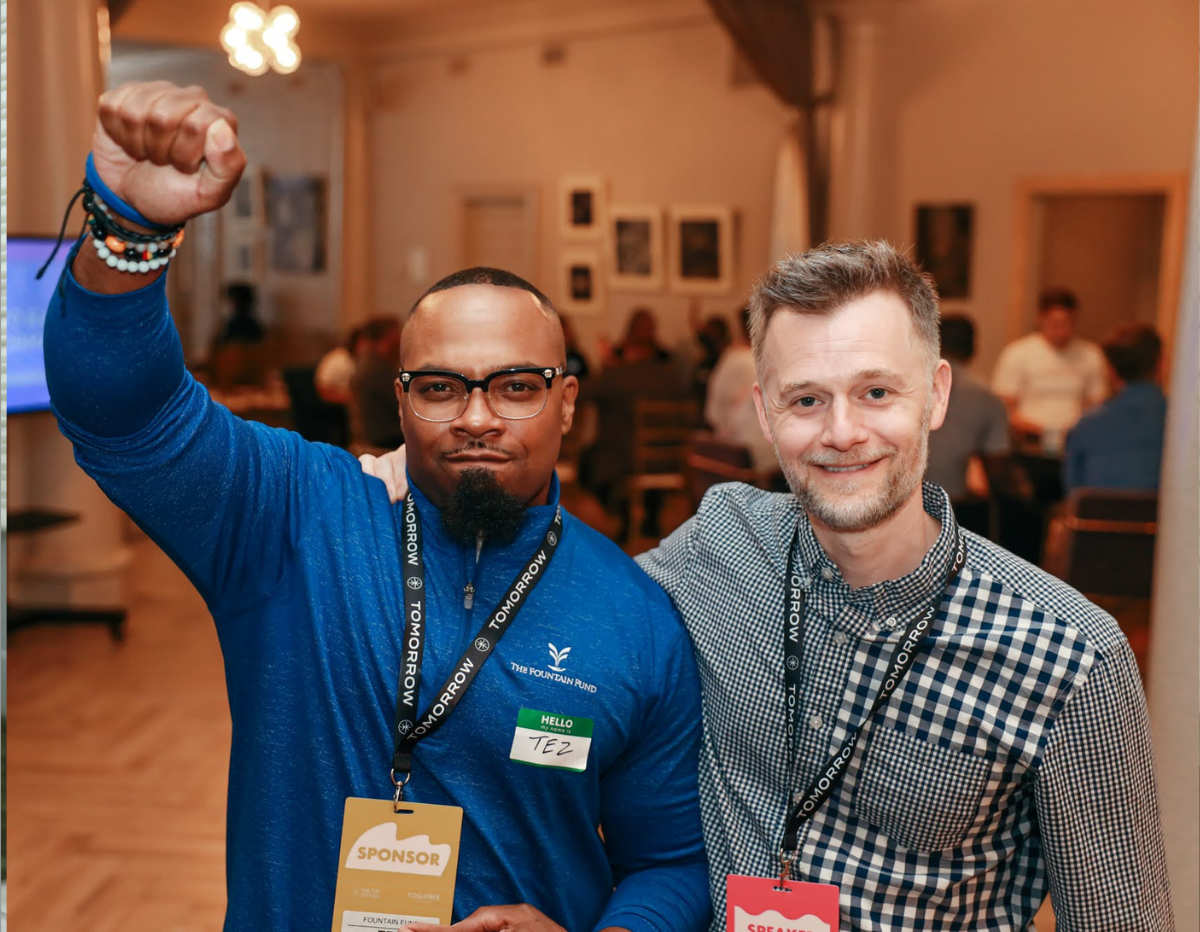
In Charlottesville, a growing movement is working to address the challenges of reentry for formerly incarcerated individuals, ensuring they have the support they need to reintegrate into the community. At the heart of this effort is the Charlottesville Area Justice Coalition, a network of justice-oriented groups that came together to foster collaboration and amplify their impact.
Sam Heath, EJUSA’s Evangelical Network Manager, helps facilitate the coalition, and describes its origins: “I kept having conversations with people in the justice world in town who kept saying, ‘I wish there was a space where justice groups could overlap and talk, or there was one place to go, and there’s not.’” In response, Heath and others created a non-member-based coalition that meets regularly to share updates, host speakers, and discuss pressing issues such as jail renovations, violence interruption programs, and restorative justice efforts.
By November 2024, Heath and his colleague Martize Tolbert from One Stop Cville proposed launching working groups based on the six key recommendations. The Albemarle-Charlottesville Reentry Council agreed to take on three: housing, employment, and access to reentry services. These working groups will officially launch this month (February 2025).
Through these conversations, a pressing issue became clear: the difficulty of connecting formerly incarcerated individuals with necessary reentry services. While resources like the Charlottesville Street Sheet—a directory of reentry services—exist, Heath points out the inherent challenges: “It assumes someone obviously can read, speak English, has a cell phone, has transportation… there’s 17 barriers to access what that sheet points to.” The need for a more accessible, coordinated effort became apparent.
Enter the Reentry Summit, an initiative designed to bring together all the stakeholders working in reentry. The idea, Heath explains, was simple: “I think people can figure out something.” With support from community leaders, the first summit was launched in April at Vault Virginia, a repurposed bank-turned-event space. Around 100 participants gathered to discuss the current state of reentry services and generate ideas for improvement.
The results were significant. Data collectors documented participants’ insights, producing 35 pages of ideas and recommendations. Recognizing the need for continued collaboration, Heath and his team organized a second summit just a month later. “The first summit was about dreaming. The second summit was about doing,” Heath explains. Attendees reconvened to analyze the data from the first gathering and identify six key areas of focus: housing, employment, faith-based partnerships, funding, access to peer navigators, and reentry services that are coordinated, comprehensive, and connected.
Momentum continued to build. “We presented the reentry findings in July, and everybody thought it was incredible and demanded, what are the next steps?” Heath recalls.
In December 2024, a third summit was held to refine these initiatives. A particular focus was placed on data, with newly compiled statistics shedding light on local incarceration trends, racial disparities, and sentencing patterns. Thanks to the UVA Equity Center, who helped sort through all the data from the second summit, the team was able to gain deeper insights.
“One of the coolest things at the summit was the data presentation,” Heath notes. “We didn’t have this before, which is so amazing.” A criminal justice planner provided three detailed reports, offering unprecedented insight into the state of incarceration in Charlottesville and the surrounding counties. Summit attendees were eager to dive into the findings, which Heath and his team made publicly accessible the following day.
Beyond the summits, the work continues. By law, each Virginia county must have a reentry council, and Charlottesville’s Albemarle-Charlottesville Reentry Council plays a crucial role in sustaining these efforts. Heath, who has attended council meetings for a year, sees it as a vital component of long-term systemic change.
The faith-based working group, which Heath leads, is developing resources to help religious communities become stronger partners in reentry efforts. “That group is likely going to produce two things: a one-pager on how faith spaces can be hospitable for those who are formerly incarcerated, and a training led by someone with lived experience to guide churches in reentry partnership,” Heath explains.
Through grassroots organizing, coalition-building, and a commitment to community-driven solutions, Charlottesville’s reentry movement is paving the way for a more just and inclusive society. As the work evolves, the lessons from the summits—collaboration, accessibility, and sustained engagement—offer a model for other communities striving to support individuals on their journey home.



